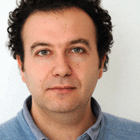Offended? Really?
I’m posting this parliamentary EDM in full. I really don’t think it requires any more comment.
JAY LENO’S COMMENTS ON THE GOLDEN TEMPLE
- Session: 2010-12
- Date tabled: 25.01.2012
- Primary sponsor: Sharma, Virendra
- Sponsors:
That this House notes with concern the sketch on the NBC Jay Leno Show where the most sacred Sikh shrine, the Golden Temple, was disrespected by Jay Leno when it was referred to as GOP Presidential candidate Mitt Romney’s summer home; expresses concern and regret that this depiction of the Golden Temple as a home of the rich shows a complete misunderstanding of the Sikh faith and is derogatory to Sikhs across the world; believes that these comments are not acceptable to all those who believe in respect for all religions; calls on Jay Leno and NBC to apologise to all Sikhs for this disrespectful depiction of the Golden Temple; and further calls on the Government to make representations to the US government that while recognising principles of freedom of speech there should be more understanding and respect shown to the Sikh faith.
Here’s the “offending” joke
(Hat-tip: Harry’s Place)

